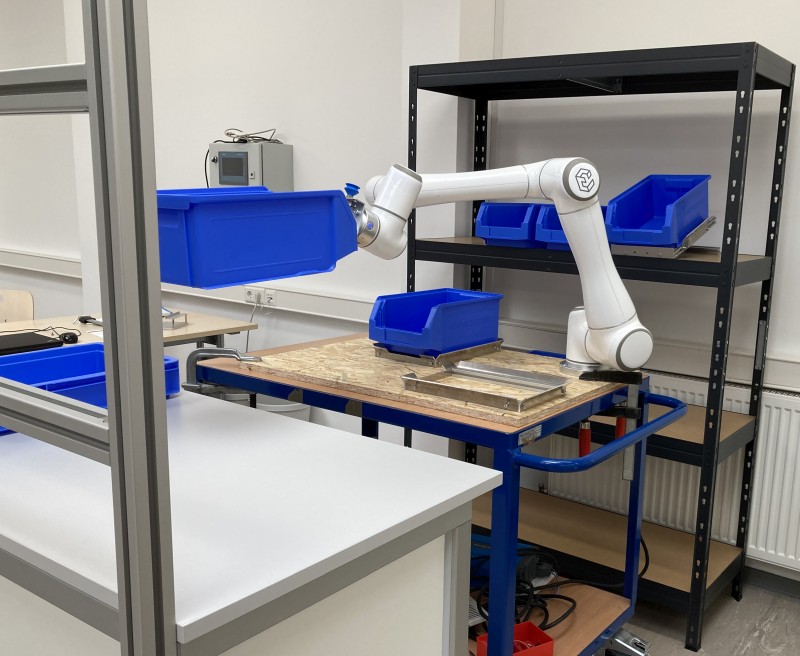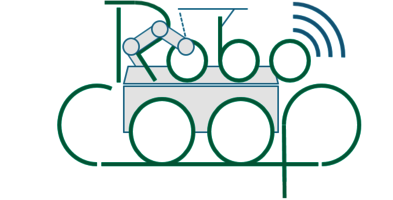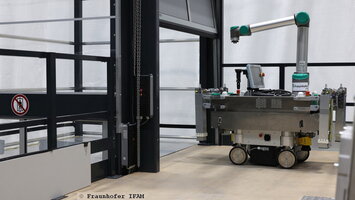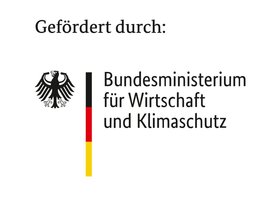Research Projects
IntelliVoiceAnalytic
In the IntelliVoiceAnalytic project, we are working with the Chair of Neurorobotics at Chemnitz University of Technology to develop new approaches for predicting and preventing errors in autonomous mobile robots. The project is being funded by the BMBF as part of the KMU-innovativ: Zukunft der Wertschöpfung initiative and will run from 1 January 2025 to 31 December 2026. We are particularly pleased that we have been able to gain our long-standing partner and customer Fabmatics as an associated partner.
The aim of the research project is to develop a lean AI-based system that continuously monitors the status of an autonomous mobile robot and recognises changes that indicate acute or developing errors. By using modern large language models, the new solution should not only become more powerful and be able to recognise more potential problems itself, but should also be transferable to other applications beyond mobile robots.
In addition, the use of a language-based interface will also simplify fault diagnosis in the field.
The Neobotix Demonstrator
Internally, we are constantly working on the further development of our products and experimenting with new functions and ideas. For hands-on tests, we can fall back on a flexible driving surface on which we can recreate a wide variety of environments with the help of practical boxes. For more complex tests, we work with a larger demonstrator that is used to test various applications, especially of mobile manipulators.
We also use this demonstrator as a basis for student internships and theses. We would also like to one day use it for ROS community challenges and similar activities that involve the robotics community.
RoboCoop
We are pleased to present the results of the BMWI-funded research project ‘RoboCoop’. The project was carried out from 2020 to 2023 with the aim of developing innovative solutions for collaboration between humans and robots in highly dynamic working environments. In particular, RoboCoop aimed to increase the attractiveness of small mobile robotics in aircraft production. The overriding aim was to sensitise other branches of industry to the advantages of small mobile robots in manufacturing.
It has always been important for us to realise new ideas and concepts in robotics, for example to make mobile robotics even more flexible and to enable more comprehensive applications in production. RoboCoop has enabled us to collect and realise many exciting new ideas.
For example, RoboCoop has helped us to switch to ROS 2 and immediately test it on a realistic and challenging use case. Thanks to this project, we can now provide the ROS community with a stable ROS 2 base package that is freely available.
Also important to mention, because it brings great added value, are the new insights into LiFePO4 batteries and inductive charging technology that we were able to gain as part of RoboCoop. One of the biggest challenges when using mobile robots in aircraft construction and especially when working inside the fuselage is the low floor load capacity. Thanks to modern LiFePO4 batteries, we were able to massively reduce the weight of the RoboCoop demonstrator and thus expand its possible applications.
The experience gained from the project has shown that there are still many very interesting and important work packages that we would like to tackle together with the robotics community. These include, among others:
- Standardisation of mixed AMR fleets
- Autonomous collaboration between AMRs
- Planning and management of very complex production chains
- Use of modern AI functions to make human-machine interaction in highly complex processes more natural and intuitive
The results achieved in RoboCoop are promising and have the potential to improve efficiency and safety in a wide range of use cases. We are delighted to have been a part of this project and hope to be involved in similar projects in the future.


DESIRE
A large number of companies and research institutes was cooperating for four years to unite the different state-of-the-art modules that have been developed in the field of robotics. The Desire project has build a platform that contains all these modules.
Its basic idea distinguished Desire from other projects. Desire was not meant to achieve a quantum leap in a specialised field of research or solve a single task but to combine all the different modules that have been developed separately and to make them reliable for everyday use.
After the end of the project, the achieved knowledge and techniques will be used by other research projects as a starting point.
Neobotix built the omnidirectional robot platform and furthermore designed and realised the robot's complete body as well as the carbon fibre cover.




